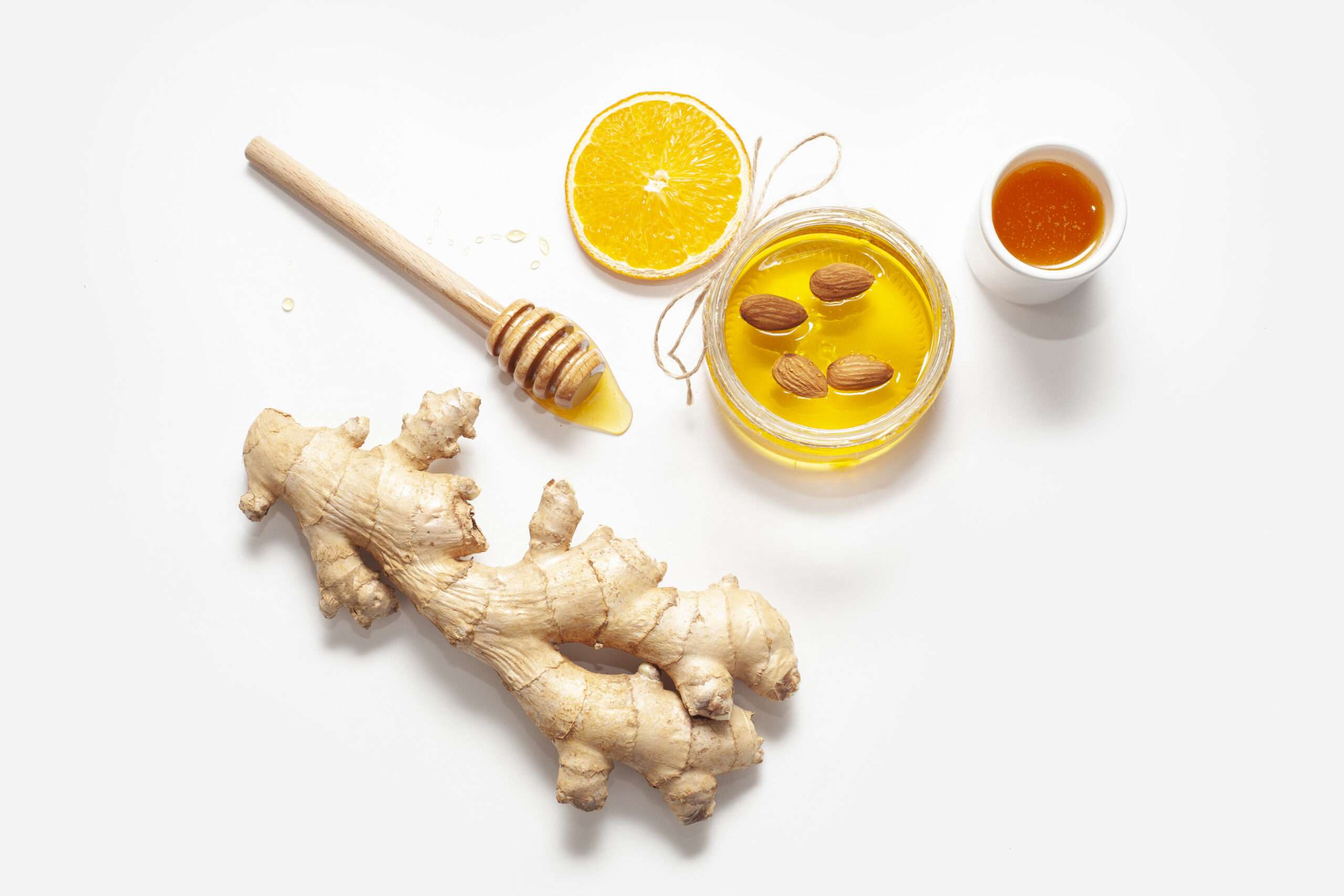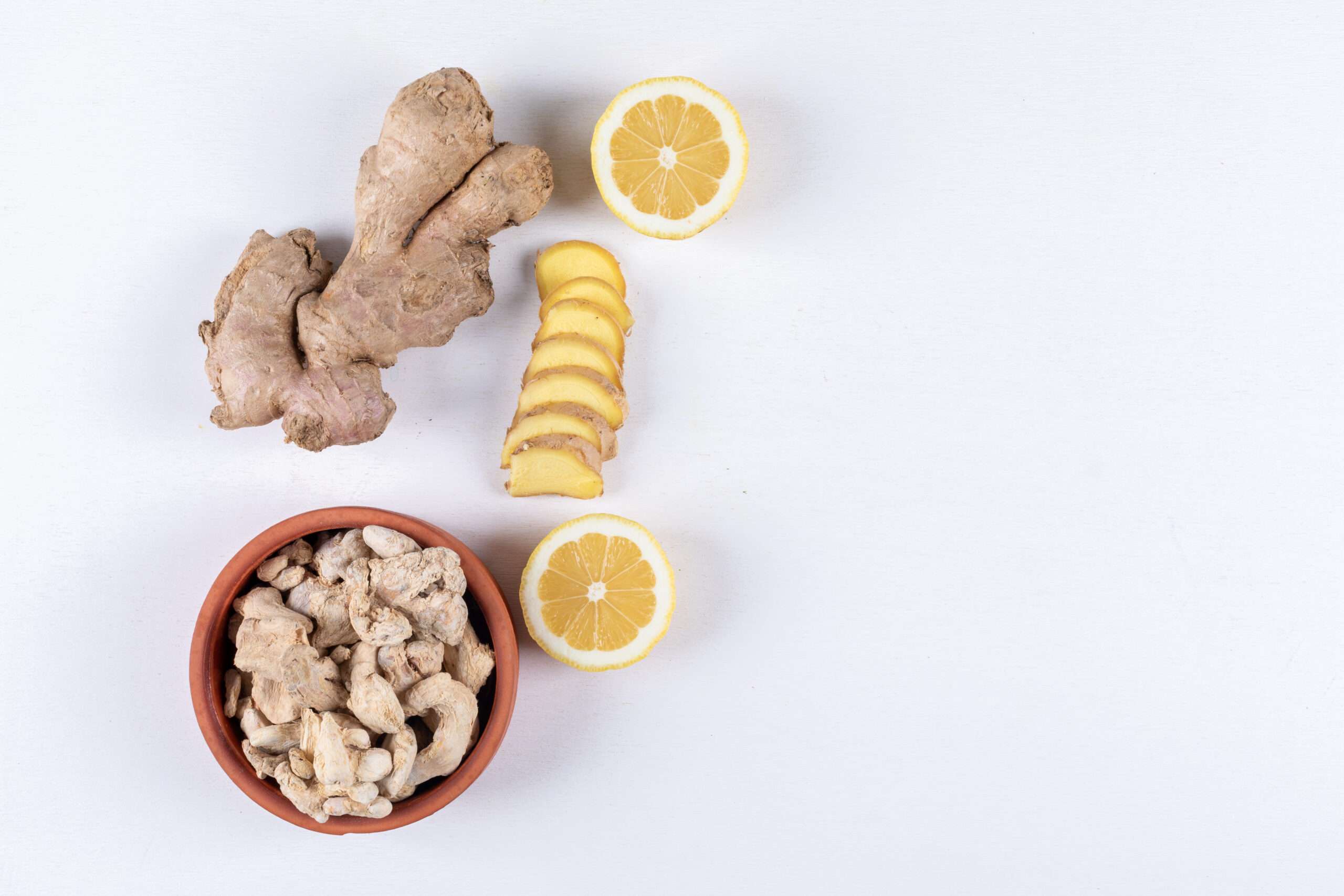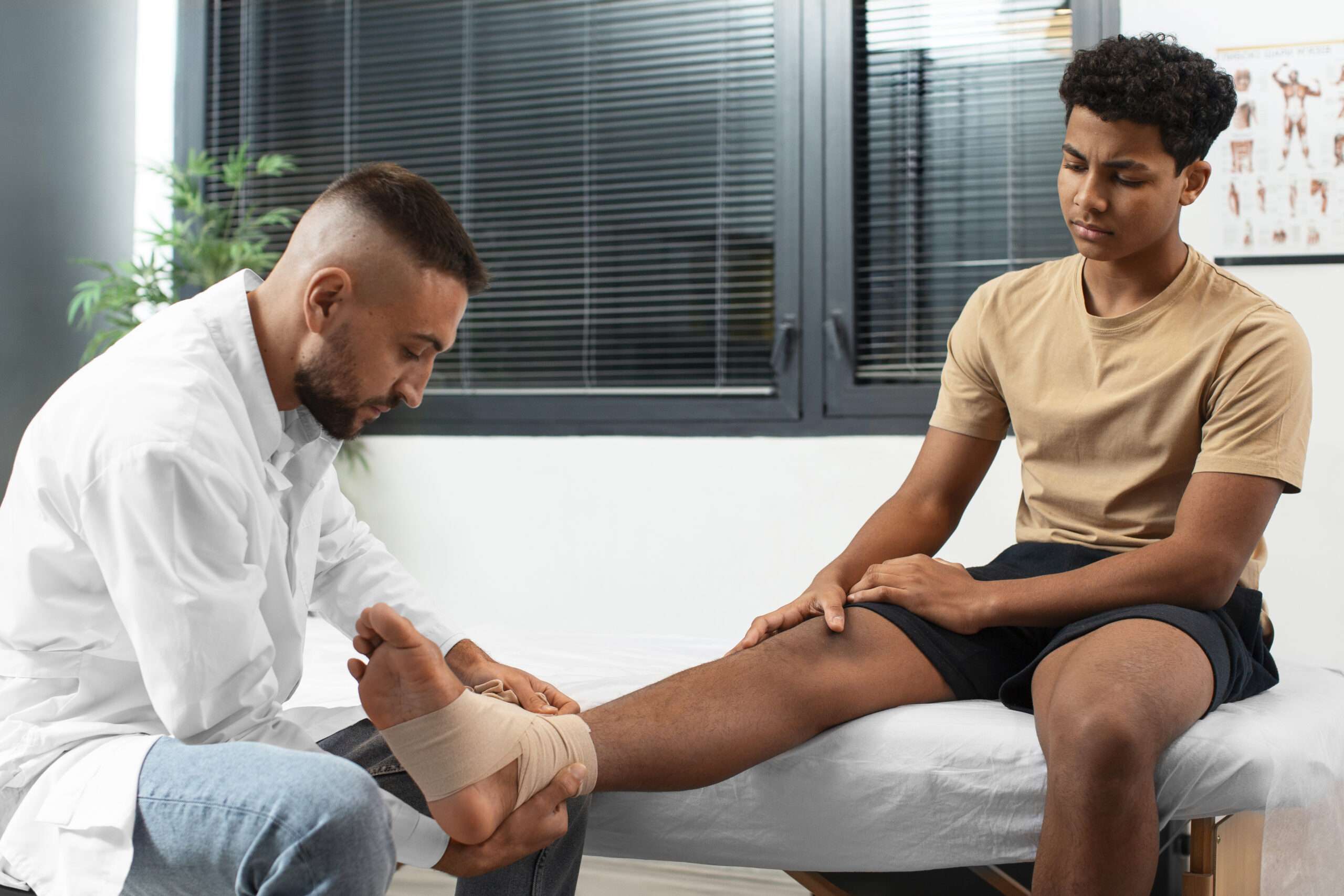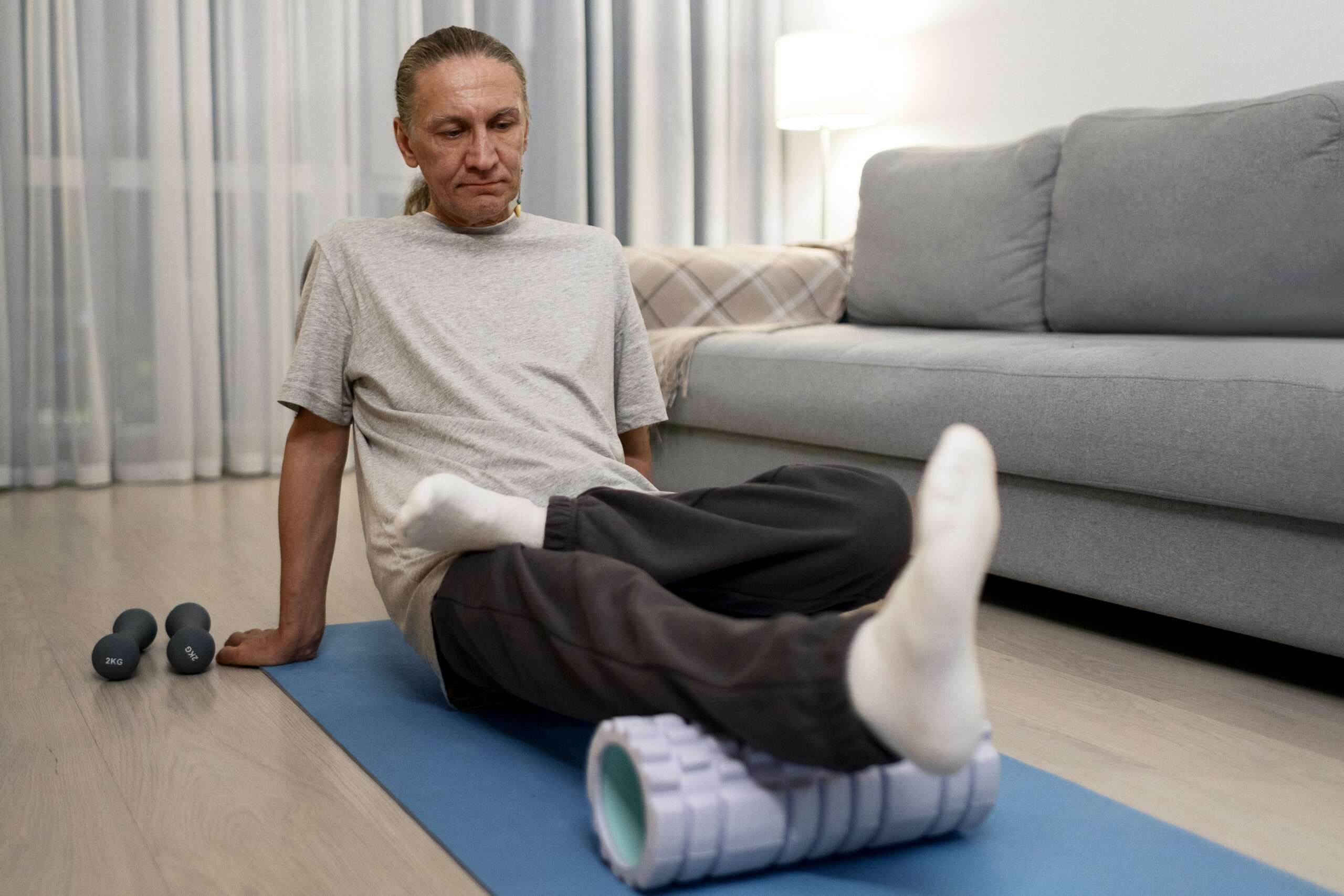Rheumatoid arthritis (RA) is a chronic, progressive autoimmune disease that causes painful inflammation in the joints and other areas of the body. It affects approximately 1.3 million adults in the United States, with women being more commonly affected than men. While conventional medications such as NSAIDs, steroids, and biologics are often prescribed to manage rheumatoid arthritis, many people seek natural remedies to complement their treatments and find additional relief.
Table of Contents
In this blog post, we will explore the top 10 natural remedies that can help ease the pain and reduce inflammation associated with rheumatoid arthritis. These natural approaches may not only offer relief but can also support overall health and well-being.
What Is Rheumatoid Arthritis?
Rheumatoid arthritis is more than just a joint problem; it’s an autoimmune disease where the body’s immune system mistakenly attacks healthy tissues, particularly the synovium—the lining of the joints. This results in inflammation, which can cause the joints to become swollen, stiff, and painful. Unlike osteoarthritis, which is caused by wear and tear, rheumatoid arthritis is systemic, meaning it can affect the entire body, including the skin, eyes, lungs, and heart.
RA can vary from mild to severe and often comes in waves or “flares.” These flares can be debilitating, affecting one’s ability to perform daily activities. While there’s no cure for rheumatoid arthritis, several natural remedies can work in tandem with medical treatments to reduce pain and improve the quality of life.
1. Calming Diet: Mending from the Back to front
An anti-inflammatory diet is one of the most effective ways to manage rheumatoid arthritis. Since RA is driven by inflammation, the food you consume can significantly influence your symptoms. Certain foods contain compounds that promote inflammation, while others help reduce it. A diet rich in anti-inflammatory foods can lower inflammatory markers in the body and ease joint pain.


Best Foods for Rheumatoid Arthritis:
- Fatty Fish: Salmon, sardines, and mackerel are excellent sources of omega-3 fatty acids, which have potent anti-inflammatory properties. Omega-3s can help reduce the levels of cytokines, inflammatory chemicals that worsen RA.
- Berries: Blueberries, strawberries, and blackberries are loaded with antioxidants like anthocyanins that fight inflammation.
- Leafy Greens: Vegetables like spinach, kale, and collard greens are rich in antioxidants and vitamins, such as vitamins C and E, which have been shown to reduce inflammation.
- Nuts and Seeds: Walnuts, flaxseeds, and chia seeds are also rich in omega-3s and are great for snacking.
- Olive Oil: A staple in the Mediterranean diet, olive oil is high in oleocanthal, which has been found to work similarly to ibuprofen in reducing inflammation.
Foods to Avoid:
- Processed Foods: These are high in trans fats and refined sugars, which can exacerbate inflammation.
- Red Meat: Limit consumption, as it contains high levels of saturated fats.
- Sugar and Refined Carbohydrates: Both contribute to inflammation and can lead to weight gain, which puts more strain on your joints.
2. Turmeric: The Golden Remedy for Joint Pain
Turmeric has been used in Ayurvedic medicine for thousands of years due to its powerful anti-inflammatory properties. The key active compound in turmeric, curcumin, has been extensively studied for its ability to reduce inflammation and oxidative stress in the body, both of which play a role in rheumatoid arthritis.


Research has shown that curcumin can inhibit certain inflammatory markers, such as TNF-alpha and interleukin-1, which are involved in the inflammation process in RA. While turmeric can be added to food, taking a curcumin supplement may provide a more concentrated dose for effective results.
How to Use Turmeric for Rheumatoid Arthritis:
- In Food: Add turmeric powder to your soups, stews, or curries. You can also mix it with warm milk for a soothing golden milk.
- Supplements: Look for curcumin supplements with piperine (black pepper extract) for better absorption. A normal dose goes from 500 to 2,000 mg each day.
- Turmeric Tea: Boil a teaspoon of turmeric powder in water, strain, and add honey for a tasty anti-inflammatory drink.
3. Ginger: A Natural Anti-Inflammatory Root
Much like turmeric, ginger is another spice with remarkable anti-inflammatory effects, which can be especially helpful for people with rheumatoid arthritis. Ginger contains compounds known as gingerols, which have been found to inhibit the production of cytokines and prostaglandins—chemicals that promote inflammation in the body.


Several studies have shown that ginger can be as effective as nonsteroidal anti-inflammatory drugs (NSAIDs) in reducing RA pain, but without the gastrointestinal side effects commonly associated with NSAIDs.
Ways to Incorporate Ginger:
- Ginger Tea: Grate fresh ginger and steep it in hot water for 10 minutes. Add a dash of honey or lemon for added flavor.
- In Food: Use fresh or powdered ginger in stir-fries, smoothies, and baked goods.
- Ginger Supplements: Capsules or extracts can provide a more concentrated dose of ginger’s active compounds.
4. Massage Therapy: Relax and Relieve Stiffness
Regular massage therapy is a well-known remedy for reducing muscle tension, improving circulation, and relieving pain. For those with rheumatoid arthritis, massage can help soothe inflamed joints and increase flexibility. Several studies have found that people with RA who receive regular massages experience a reduction in pain and stiffness, as well as improvements in their range of motion.


Massage Techniques for Rheumatoid Arthritis:
- Swedish Massage: This type of massage uses long, smooth strokes and light pressure to promote relaxation.
- Trigger Point Massage: Focuses on specific painful spots in the muscles to relieve tension.
- Use of Essential Oils: Adding essential oils like eucalyptus or peppermint during massage can enhance the pain-relieving effects, as these oils have natural anti-inflammatory properties.
Always work with a massage therapist who has experience treating people with arthritis and understands the delicate nature of swollen joints.
5. Acupuncture: Ancient Therapy for Modern Relief
Acupuncture has been practiced for thousands of years in traditional Chinese medicine and has become a popular alternative treatment for rheumatoid arthritis. By inserting thin needles into specific points on the body, acupuncture is thought to help balance the flow of energy (known as Qi) and stimulate the body’s natural pain-relieving chemicals, such as endorphins.


A growing body of research supports the use of acupuncture for rheumatoid arthritis, with many studies suggesting that it can reduce pain, improve joint function, and decrease inflammation. The treatment is generally safe when performed by a qualified practitioner.
What to Expect from Acupuncture:
- Sessions: Treatments usually last 30–60 minutes, with thin needles placed in specific points on the body.
- Frequency: Most practitioners recommend weekly or bi-weekly sessions, depending on the severity of symptoms.
- Combination Therapy: Acupuncture can be used alongside other natural remedies or traditional treatments.
6. Hot and Cold Therapy: Instant Joint Pain Relief
Hot and cold therapy is a simple yet effective way to manage rheumatoid arthritis pain. This method works by applying heat to relax tight muscles and increase circulation, while cold therapy numbs the affected area and reduces inflammation.


How to Use Hot and Cold Therapy:
- Heat Therapy: Use a heating pad or warm towel on stiff joints for 15–20 minutes. A warm shower or bath can also be effective in loosening up stiff joints in the morning.
- Cold Therapy: Apply an ice pack or cold compress to inflamed joints for 10–15 minutes to reduce swelling and numb the area. Be sure to place a cloth between the ice and your skin to avoid frostbite.
- Alternating Therapy: Switching between heat and cold therapy can help reduce inflammation and soothe sore muscles. For example, you can apply heat in the morning to loosen stiff joints, then use cold therapy later in the day to reduce swelling.
7. Epsom Salt Baths: A Relaxing Remedy for Pain Relief
Magnesium is a critical mineral for muscle and joint function, and Epsom salts (magnesium sulfate) have been used for centuries to relieve joint pain and swelling. Soaking in an Epsom salt bath allows your body to absorb magnesium through the skin, which can help reduce inflammation and relax tense muscles.


In addition to easing rheumatoid arthritis pain, magnesium may help to promote better sleep, which is important for people with RA, as the condition often disrupts sleep patterns.
How to Use Epsom Salt Baths:
- Fill your bath with warm water and add 2 cups of Epsom salt.
- Soak in the bath for 20–30 minutes, allowing the magnesium to absorb into your skin.
- You can add essential oils like lavender or eucalyptus to enhance the relaxing effects.
8. Omega-3 Fatty Acids: Fights Inflammation from Within
Omega-3 fatty acids, found in fatty fish and plant sources like flaxseeds and chia seeds, are renowned for their anti-inflammatory effects. These essential fats have been shown to reduce joint stiffness and tenderness in people with rheumatoid arthritis by lowering the production of inflammatory proteins called cytokines.


Omega-3 supplementation has been found to reduce the need for anti-inflammatory medications, providing natural, long-term relief from rheumatoid arthritis symptoms.
Sources of Omega-3s:
- Fatty Fish: Salmon, mackerel, sardines, and herring are excellent sources of omega-3 fatty acids.
- Plant-Based Sources: Flaxseeds, chia seeds, and walnuts are great plant-based options for those who prefer not to eat fish.
- Supplements: Fish oil or algae-based omega-3 supplements can be a convenient way to ensure you’re getting a sufficient amount of omega-3s.
Dosage Recommendations:
Experts generally recommend consuming 1,000 to 3,000 mg of combined EPA and DHA (the active forms of omega-3) daily for people with rheumatoid arthritis. If you’re not getting enough from your diet, supplements can be an easy way to reach this goal.
9. Regular Exercise: Movement Is Medicine
When dealing with rheumatoid arthritis, exercise might seem counterintuitive—especially when your joints are stiff and painful—but it’s crucial for managing the condition. Regular exercise helps maintain joint flexibility, strengthen muscles around the joints, and reduce overall inflammation in the body. It also improves cardiovascular health, which can be a concern for people with RA, as they are at higher risk for heart disease.


The key is to engage in low-impact exercises that do not stress the joints.
Best Exercises for Rheumatoid Arthritis:
- Swimming and Water Aerobics: Water reduces the impact on your joints while allowing you to build strength and flexibility.
- Walking: A gentle walk helps get the blood flowing to your joints and reduces stiffness.
- Yoga and Tai Chi: These exercises focus on gentle movements, improving flexibility and balance while reducing stress—a known RA trigger.
- Strength Training: Light resistance training helps to build muscle, which supports the joints. Be sure to work with a physical therapist or trainer to avoid overexerting your joints.
Even a few minutes of stretching and light activity each day can help improve symptoms over time. Be sure to listen to your body and avoid exercises that exacerbate your pain.
10. Stress Management: Calm Your Mind, Calm Your Joints
Stress is a significant trigger for rheumatoid arthritis flare-ups, as it can worsen inflammation and increase sensitivity to pain. Managing stress levels is crucial in reducing the frequency and intensity of RA symptoms. Several techniques can help calm both the mind and body, promoting relaxation and reducing inflammation.
Effective Stress-Reduction Techniques:
- Mindfulness Meditation: Practicing mindfulness can reduce stress, improve mood, and help people with RA manage pain more effectively. Regular meditation has been shown to reduce the activity of pro-inflammatory genes in the body.
- Deep Breathing Exercises: Breathing deeply from your diaphragm can instantly reduce feelings of stress and anxiety. This can help lower cortisol levels, a stress hormone that contributes to inflammation.
- Progressive Muscle Relaxation: This technique involves tensing and relaxing different muscle groups to release physical tension in the body.
- Creative Outlets: Engaging in hobbies such as painting, knitting, or playing music can be a great way to reduce stress and take your mind off the pain.
Consider integrating these techniques into your daily routine to help keep stress levels in check and improve your overall well-being.
Additional Tips for Managing Rheumatoid Arthritis Naturally
In addition to these top 10 natural remedies, here are some extra tips to consider when managing rheumatoid arthritis:
- Stay Hydrated: Drinking enough water is essential for joint health. Dehydration can lead to joint pain and stiffness.
- Get Enough Sleep: Sleep is critical for the body’s ability to heal and manage inflammation. Aim for 7–9 hours of quality sleep per night.
- Weight Management: Maintaining a healthy weight reduces the strain on your joints, particularly those in the lower body. This can lead to less pain and fewer RA flare-ups.
- Quit Smoking: Smoking is a significant risk factor for the development and progression of rheumatoid arthritis. If you smoke, quitting can improve your symptoms and overall health.
Final Thoughts
Rheumatoid arthritis can be a debilitating condition, but it doesn’t have to control your life. By integrating these natural remedies into your daily routine—alongside any medical treatments prescribed by your doctor—you can help manage your symptoms, reduce inflammation, and improve your overall quality of life.
Remember, every individual with rheumatoid arthritis is different, and what works for one person may not work for another. It’s important to consult with your healthcare provider before making any significant changes to your treatment plan, especially when it comes to supplements or complementary therapies.
The path to rheumatoid arthritis pain relief is multifaceted, but with a combination of a healthy diet, lifestyle changes, and natural remedies, you can find relief from the pain and stiffness associated with this chronic condition.
Start small, stay consistent, and be patient with yourself—and soon, you may find that natural remedies can make a significant difference in your day-to-day well-being.
By following these natural remedies for rheumatoid arthritis, you can take steps toward managing your condition more effectively, supporting your overall health, and achieving lasting pain relief.
FAQs
1. Can natural remedies completely cure rheumatoid arthritis?
No, natural remedies cannot cure rheumatoid arthritis, as it is a chronic autoimmune condition. However, natural treatments such as dietary changes, supplements like turmeric and omega-3 fatty acids, and lifestyle adjustments (exercise, stress management) can help reduce inflammation and manage pain, improving overall quality of life.
2. What amount of time does it require to get results from normal solutions for rheumatoid joint pain?
The time it takes to see results varies from person to person and depends on the remedy used. Some individuals may experience relief within a few weeks, especially with dietary changes or supplements like omega-3s. However, consistent use of natural remedies over several months is often necessary to see significant improvements in joint pain and inflammation.
3. Are natural remedies safe to use with prescribed rheumatoid arthritis medications?
Many natural remedies can be safely used alongside prescribed rheumatoid arthritis medications. However, it is crucial to consult your doctor before adding any supplements or therapies, especially if you are taking medications that may interact with natural treatments like herbs, supplements, or essential oils.
4. Can diet alone help manage rheumatoid arthritis symptoms?
While diet can play a significant role in reducing inflammation and supporting joint health, it is not usually enough on its own to manage rheumatoid arthritis. Combining an anti-inflammatory diet with other natural remedies and prescribed treatments provides a more comprehensive approach to symptom relief.
5. How important is exercise in managing rheumatoid arthritis naturally?
Exercise is essential in managing rheumatoid arthritis naturally. Low-impact activities like swimming, yoga, and walking help maintain joint flexibility, strengthen muscles, and reduce stiffness. Regular physical activity can also improve overall cardiovascular health and reduce inflammation, leading to better symptom control over time.


